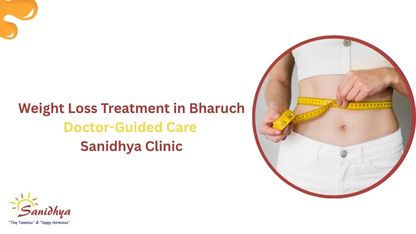Natural Ways To Boost Feel-Good Hormones?
- Sanidhya Clinic

- Oct 7, 2022
- 3 min read
Updated: Dec 7, 2022

Whether you're suffering from COVID fatigue or feeling blue due to dreary weather, there are plenty of ways to cultivate more happiness in your daily life. The key is figuring out which activities boost your body's natural feel-good hormones and doing more of them.
A lot of different hormones and neurotransmitters can help us feel better, and there are plenty of ways to trigger the release of these hormones. In fact, simple activities like exercise, spending time outside, even cuddling with a puppy (or a person) can do the trick.
What Are Feel-Good Hormones?
Hormones act as messengers for our bodies, regulating everything from our physical functioning to our emotional well-being. The cool thing about many of these hormones is- They're highly influenced by our thoughts, activities and even the foods we eat.
Understanding these chemicals and how they work can help you devise specific strategies to feel better. The four, key happiness-boosting hormones include:
Dopamine: Often called the "happy hormone," dopamine results in feelings of well-being. A primary driver of the brain's reward system, it spikes when we experience something pleasurable. Praised on the job? You'll get a dopamine hit. Falling in love? Your dopamine levels will skyrocket. Dopamine produces that high we get from food, sex, shopping, pretty much any activity that we find enjoyable.
Serotonin: Dubbed the "feel-good hormone," serotonin plays a key role in staving off anxiety and depression. In fact, the main class of drugs used to treat these conditions — SSRIs (selective serotonin reuptake inhibitors) — increase serotonin levels in the brain. Exercise, spending time outdoors and getting a good night's sleep can help boost serotonin.
Endorphins: Most commonly linked with exercise, endorphins are highly associated with runner's. Cardiovascular exercise is one of the best ways to increase endorphins. These powerful hormones act as natural pain killers, minimizing discomfort and maximizing pleasure. They're a key reason why athletes can push past pain during a tough race or big game.
Oxytocin: Best known for its role in bonding and attachment, oxytocin floods a woman's system during childbirth and while nursing. But delivering a baby isn't the only way to get a rush of oxytocin. This "love hormone" also spikes with any sort of intimate touch, including holding hands, cuddling, kissing, massage and sex.
Activities That Boost Feel-Good Hormones
While there's no surefire way to get your feel-good hormones circulating, there are activities you can add to your day to naturally boost all four happiness hormones. Favorites include:
Cuddling with a loved one
Exercising
Experimenting with aromatherapy
Getting a massage
Having sex
Listening to feel-good music
Meditating
Spending time outdoors
Taking a nap
Watching a comedy
It doesn't matter which activities you choose as long as the pursuit brings you joy. There's no right way to boost any of these feel-good hormones. Instead, the key is to tune into your body and notice how different activities make you feel, both in the moment and in the hours afterward.
Still feeling down? Talk to Dr. Samir Saini. Maybe you're deficient in certain nutrients, like vitamins B12 or D. Or maybe you are struggling with anxiety as the world begins opening up. No matter what's going on in your psyche, getting the right treatment is key.
About Sanidhya Clinic
The Sanidhya clinic provides out-patient services with highly qualified and experienced specialists on hormonal disorders in children and adults along with in-house laboratory, pharmacy and a team of paramedical officers. The clinic is equipped to deal with hormonal disorders related to the pituitary, adrenal, thyroid, pancreas, insulin(diabetes) and reproductive endocrinology, especially complex secondary & tertiary care, gestational diabetes management, adult and adolescent diabetes management, metabolic & liver disorders. The only center in Vadodara providing all specialty services related to any hormonal and metabolic disorders along with visiting consultancy at Bodeli, Dahod and Bharuch.




Comments